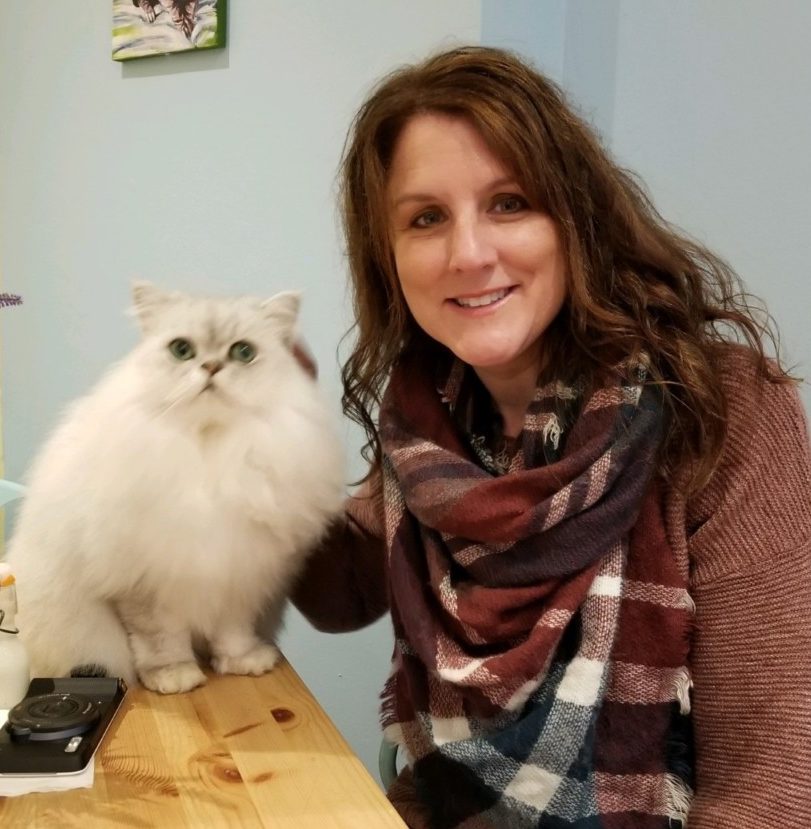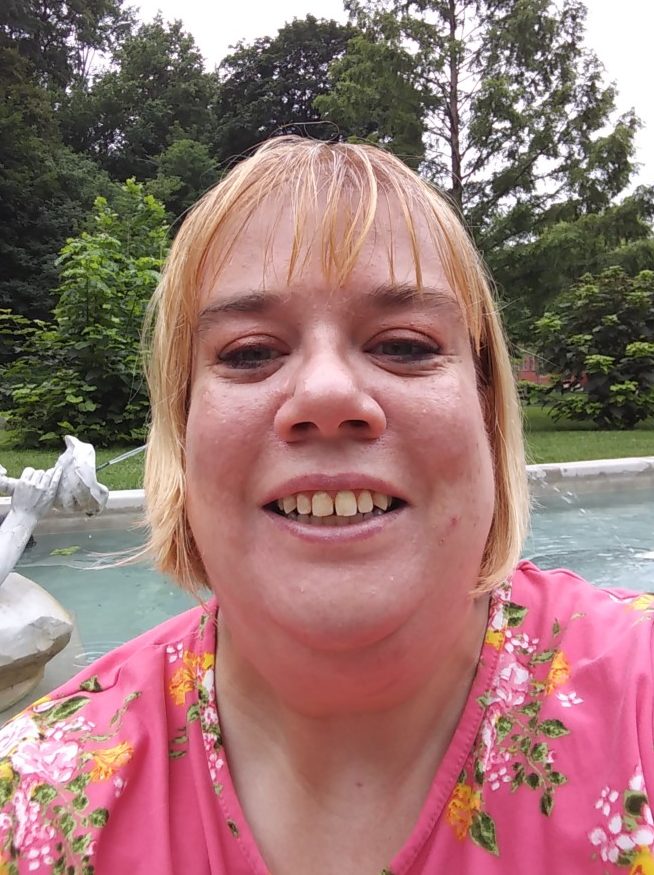RISE Housing and Support Services is committed to providing safe, affordable permanent housing. Our supportive housing programs enable people with mental health diagnoses, chronic health conditions, and other life challenges live safely and independently in their own homes. We believe that our continued expansion of these supportive housing programs in Saratoga and surrounding counties is vital to the health and well-being of our community.
RISE Supported Housing has been in operation as an essential community service for over 25 years. Empowering these vulnerable individuals to live independently reduces the use of other costly care systems such as emergency shelters, group homes, and other public institutions. Our supportive services also help to lessen the need for high-cost emergency services, such as inpatient psychiatric hospitals.
“The security supportive housing provides helps stabilize people.”
 Rik Jordan has been with RISE for 25 years. He currently serves as RISE’s Residential Director, providing oversite to our residential programs – including RISE Supported Housing. Previously, Rik led the RISE Supported Housing Program as Director for over 14 years. He has in-depth, first-hand knowledge of how effective supportive housing can be.
Rik Jordan has been with RISE for 25 years. He currently serves as RISE’s Residential Director, providing oversite to our residential programs – including RISE Supported Housing. Previously, Rik led the RISE Supported Housing Program as Director for over 14 years. He has in-depth, first-hand knowledge of how effective supportive housing can be.
I believe that the security supportive housing provides helps stabilize people. During my time as the RISE Supported Housing Director, I witnessed many individuals who have struggled in other types of treatment programs settle in and become stable in supportive housing. One individual who, prior to being in supportive housing, had been hospitalized multiple times due to escalation of his mental health symptoms, did not once have to be hospitalized during the 20 plus years he was in our program.
This success is due largely to the supportive services our staff provides. We assist people in reaching out to primary care providers, rather than emergency services. As a team we provide a cohesiveness of service that produces tangible results, such as the reduction of costs that are incurred due to emergency room visits, hospitalizations, and usage of other more costly care facilities. The supportive services our staff provides produces the stability necessary for people to maintain their housing, which reduces the number of people who return to homelessness after failing to thrive in other types of housing or treatment settings.
Several of the people we work with are elderly; 25% of our residents are over 65 years of age. Our supportive housing staff help them arrange services that can keep them safe in their home as long as possible. These services include medication management, medication delivery from the pharmacy, life alert, transportation, meal deliveries, home health aides, visiting and home health nurses, and referrals to the Office of the Ageing. We help them have a better quality of life and the ability to stay in their homes as they age, delaying their entry into costly care and nursing facilities.
“The beauty of supportive housing is developing creative solutions to help people remain independent.”
 Amy Perkins has been a RISE Supported Housing Counselor for seven years. She enjoys providing supportive services to residents in our program and finding creative solutions to helped them remain in their homes, rather than having to move into a higher level of care such as 24-hour supervised congregate care settings.
Amy Perkins has been a RISE Supported Housing Counselor for seven years. She enjoys providing supportive services to residents in our program and finding creative solutions to helped them remain in their homes, rather than having to move into a higher level of care such as 24-hour supervised congregate care settings.
One of the women I work with is simply amazing. She has both mental health challenges and some severe physical health concerns. Yet, despite her many hardships, she is so cheerful and has such a positive, optimistic outlook. She always is concerned about other people and wants to give back in any way she can. She is truly inspiring.
Thus, I was disheartened when it became apparent that she was unable to manage taking her medications without making errors. If she had not been in supportive housing, she might not have been able to remain in her home even though she is very independent and manages living on her own wonderfully. I feared we would have to move her into an assisted living program, but thankfully, we were able to come up with a plan where with the assistance of RISE program staff, she is able to manage her medication and remain in her home. This is the beauty of supportive housing, being able to develop creative solutions to help people remain living independently in their own homes.
Supportive housing saves the public approximately $10,000 per person per year.
A recent study by the New York Department of Health and Mental Hygiene showed that supportive housing saves the public approximately $10,000 per person per year by providing secure, stable, high-quality accommodations and supportive services to individuals and families – who would otherwise end up homeless or in more expensive institutional settings.
Rik Jordan explains why he believes that successes reported by these type of studies helps to fund and expand supportive housing programs.
I feel that New York State recognizes the cost savings of supportive housing programs due to their success in helping people maintain their housing. Thus, the state continues to fund, support, and expand supportive housing programs in New York. As result, over the years, RISE has been able increase the number of people to whom we are able to provide supportive housing services.
The funding from the state enables supportive housing units to be affordable, especially to individuals and families with limited incomes. RISE Supported Housing residents hold their own leases and pay only about 30% of their income for rent, allowing them the opportunity to improve their quality of life and actively engage in the community through volunteering, participating in recreational programs, and even working part-time jobs. Without these types of supports many of the people we work with would become homeless, requiring extra supports from the community rather than being engaged and contributing members of the community.
“My home is comfortable. It is extremely affordable, and it is centrally located to my service providers.”
 Elaina, a RISE Supported Housing resident, is appreciative of the housing and support she receives through RISE Supported Housing. Due to her limited income, chronic physical conditions, and mental health challenges, she would otherwise be at risk of homelessness.
Elaina, a RISE Supported Housing resident, is appreciative of the housing and support she receives through RISE Supported Housing. Due to her limited income, chronic physical conditions, and mental health challenges, she would otherwise be at risk of homelessness.
Being in supported housing allows me to be secure in the knowledge that I will have a place to come home to every night that is safe and warm.
Prior to coming into the RISE Supported Housing program, I was in a very bad living situation in Corinth where there is very little affordable housing. I could not afford an apartment on my limited income. But now that I am in supportive housing, I can afford my own apartment. I no longer have to couch surf, impose on my few close friends, or end up homeless sleeping under a bridge. My home is comfortable. It is extremely affordable, and it is centrally located to my service providers in Saratoga Springs. When I was in Corinth, I had no transportation, which made it difficult to get to my appointments without imposing on others.
“I work part time, which helps me not be totally dependent on the state for my well-being.”
 Brian, another RISE Supported Housing resident who has been in the program for seven years, is unable to work a full-time job due to the severity of his mental health challenges. However, because of the stable housing and support services he receives, he is able to properly care for his mental health, enabling him to work both a part-time job and a weekly volunteer position.
Brian, another RISE Supported Housing resident who has been in the program for seven years, is unable to work a full-time job due to the severity of his mental health challenges. However, because of the stable housing and support services he receives, he is able to properly care for his mental health, enabling him to work both a part-time job and a weekly volunteer position.
Being in supportive housing gives me a sense of security that no matter what, I will have housing. I know that I don’t have to worry about becoming homeless due to outside factors like an unstable economy causing the loss of my job. I work because I want to contribute to society, but if I were to try and find a safe place to live making entry level wages or relying on my SSI funding, I would never be able to afford an apartment by myself. Thanks to the rental assistance I receive from being in supportive housing, I can work part time, which helps reduce the SSI funding I receive and helps me not be totally dependent on the state for my well-being. I like knowing I am able to be a contributing member of our community despite my mental health challenges which prevent me from working a higher paying full-time job.
If I had not been in supportive housing, I would not have had the opportunity to volunteer at Temple Sinai nor be able to work the part-time janitorial position I’ve had at the temple for past seven years. Volunteering and working at Temple Sinai is very important to me. When I volunteer, we bake challah bread which is donated to various organizations in Saratoga Springs. In my job there, I do janitorial work a few days a week at the temple setting up for and cleaning up after the Saturday school, and special events like Bar or Bat Mitzvahs. Working and volunteering at the temple helps me feel that I am doing something that is important to our community.
“The support services we provide to individuals in supportive housing are essential.”
 John Shoemaker has been with RISE for 14 years. He has worked as a residential counselor, program supervisor and is the current RISE Supported Housing Program Director.
John Shoemaker has been with RISE for 14 years. He has worked as a residential counselor, program supervisor and is the current RISE Supported Housing Program Director.
Through his years of experience, John has seen many times over how the support services provided through our housing program helps individuals remain in their homes and stable members of the community.
The support services we provide to individuals in supportive housing are essential to helping them remain in and maintain their homes. The support we provide helps them manage medications, their mental and physical health, and the day-to-day tasks that allow them to live safely in their own homes.
For some people in supportive housing, our staff acts as a liaison between them and their landlords. This is crucial as often landlords do not understand that individuals with mental health challenges are able safely live independently on their own. We assure the landlords that we are there to provide oversight and guidance as needed. We can intercede on their behalf and mitigate any misunderstandings that could potentially lead to problems or even eviction between the individual and their landlords.
I have not been hospitalized for my mental health since being in RISE programs.
 Amanda has been a RISE Supported Housing resident for seven years. When she first came into our supportive housing program, she did not have the skills she needed to maintain an apartment on her own, she had difficulty maintaining her mental health and has previously been hospitalized in the psychiatric inpatient unit several times. Through the services she received while in supportive housing, she has learned the skills needed to manage her mental health and to become more independent in maintaining her own apartment.
Amanda has been a RISE Supported Housing resident for seven years. When she first came into our supportive housing program, she did not have the skills she needed to maintain an apartment on her own, she had difficulty maintaining her mental health and has previously been hospitalized in the psychiatric inpatient unit several times. Through the services she received while in supportive housing, she has learned the skills needed to manage her mental health and to become more independent in maintaining her own apartment.
I have public housing assistance, so I no longer use the financial assistance that RISE Supported Housing provided me in the past, but I do need the supports the staff offers to continue to successfully live independently in my apartment.
In the past, if I was struggling my parents would come to my rescue. But because they did, I did not learn to work through my problems on my own. Since being in supportive housing, when I’m struggling and I reach out to staff, they talk my problems through with me. They remind me about the coping skills I can use, or they ask me questions to help me figure out how I can come up with a so+9lution. As a result, I have become much more independent and can often figure things out that in the past might have caused me to be unstable, be hospitalized, or even lose my apartment.
One of the things I am most proud about since being in supportive housing is that I have not been hospitalized for my mental health since being in RISE programs. Previously when my mental health symptoms became too much, I would have to go into the mental health unit to become stabilized. But with the supports that the RISE programs give me I am able to manage my mental health at home with my medications and by using my coping skills.
“Some individuals only need supportive housing long enough to get a handle on their mental health challenges.”
 Michael LaBelle has been a Supported Housing Counselor for over twenty years. Over the years he has helped many individuals through RISE Supported Housing.
Michael LaBelle has been a Supported Housing Counselor for over twenty years. Over the years he has helped many individuals through RISE Supported Housing.
While supportive housing is typically permanent, on occasion, it can be a way for someone to regroup and gain the stability needed to obtain full-time employment that allows them to be a fully independent and contributing member of the community.
For most folks, supportive housing is the end game. This is as high as they are going to go; there are no next things. So, my job is to have the long conversation—discussing what they are doing on a daily basis to maintain their physical and mental health so that they can stay in their homes. There are, however, those individuals that only need supportive housing long enough to get a handle on their mental health challenges, figure out how adjust to and manage them, and then move on.
One individual that comes to mind started experiencing mental health challenges in his early 20’s while attending college. He came into our supportive housing program, learned how to manage his mental health, finished college, and went on to obtain a full-time job at an airline. He has since moved to Las Vegas, but he has kept in contact with me over the years and continues to do very well.
“We need more funding, and more programs like this.”
While RISE provides supportive housing services for about 60 individuals and families, the need for this type of program remains prevalent in our community. John explains…
The unfortunate part about supportive housing is that because funds are limited and the housing is permanent, the wait lists to get into our program are long. We need more funding, and more programs like this to meet the needs of everyone who needs the type of assistance that supportive housing provides.
